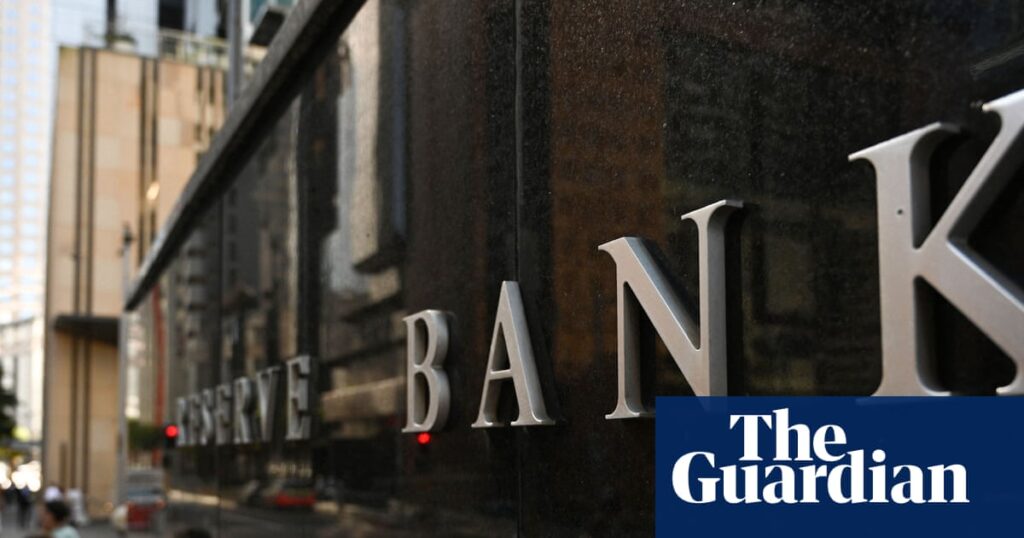The Reserve Bank has left the official interest rate on hold, as it warned house prices and rents will rise in 2026 after a surprise rebound in inflation.
The RBA’s monetary policy board on Tuesday kept the cash rate at 3.6%, where it has sat since August. Economists and banks overwhelmingly expected no change.
The central bank has cut interest rates three times in 2025, easing pressure on mortgage holders and fuelling rapid house price rises.
Sign up: AU Breaking News email
Core inflation rose to 3% – the top of the RBA’s preferred range – in September, the first acceleration of the underlying measure since 2022.
Inflation will surge much higher by mid-2026 – reaching a headline rate of 3.7%, and 3.2% by the bank’s preferred core measure – according to updated RBA forecasts accounting for September’s increase.
Rents, house prices and service fees are among the categories set to rise faster than previously forecast.
The RBA board dismissed a surprise jump in unemployment in September, saying the jobs market was still running hot as businesses struggled to find workers.
There was no need for a November rate cut as spending and jobs growth had held up and past rate cuts were still having a delayed effect, the rate-setting board said.
“Given [these delays], and the recent evidence of more persistent inflation, the Board judged that it was appropriate to remain cautious,” the board’s statement read.
Financial markets over the last week have cut back their bets on another interest rate cut being handed down in the next 12 months. Major banks do not expect another cut until next year.
after newsletter promotion
The bank’s updated forecasts, predicated on market bets of a cut by the end of 2026, show core and headline inflation were no longer expected to gradually return to 2.5%, the middle of the RBA’s preferred range, but instead bump up then drop back to 2.6% by the end of 2027.
Higher inflation meant real wages would go backwards by the end of 2026 from the start of 2025, the bank said in its statement on monetary policy, released on Tuesday. Real wages had previously been forecast to pick up.
Some of the inflation increase would persist as past rate cuts and rising consumer spending meant Australia’s economy was growing at close to its speed limit, stretching businesses and increasing pressure on prices, the statement read.
The RBA governor, Michele Bullock, was scheduled to address media on Tuesday afternoon to explain the board’s thinking.

